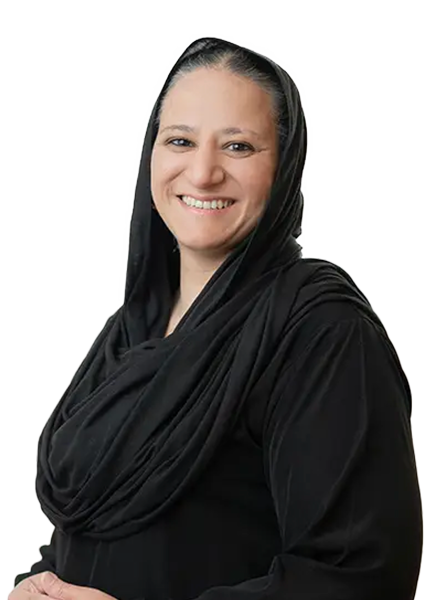Have you been contacted by social services, received a pre-proceedings letter, or been invited to a pre-proceedings meeting? If so, you are involved in what is known as a Public Law Outline (PLO) matter, which is an important legal process concerning the welfare of your child. The PLO is used by local authorities to assess and address concerns regarding a child’s safety and wellbeing before taking any legal action, such as initiating care proceedings. It is a key stage in child protection cases, and being involved in a PLO matter can feel overwhelming. Understanding the process and your rights at this stage is crucial to ensuring that your voice is heard and that your child’s best interests are protected.
What is a Public Law Outline (PLO)?
The Public Law Outline (PLO) sets out the duties of local authorities when considering whether to take a case to court to request a Care Order (to place a child in care) or a Supervision Order (to monitor a child’s welfare). The PLO stage is often the first step toward public law care proceedings.
However, receiving a PLO letter does not automatically mean court proceedings will follow. With the right legal advice and support, engaging with professionals, and taking the local authority’s recommendations seriously, you may be able to prevent care proceedings. Instead, consider the PLO process as an opportunity to understand the concerns raised and to make positive changes.
Under Section 31 of the Children Act 1989, a court may only grant a Care Order or Supervision Order if it is satisfied that the Threshold Criteria have been met. If concerns about a child remain unresolved, the local authority will decide whether to go ahead with pre-proceedings.
What is the Threshold Criteria for a Care Order or Supervision Order?
For a court to make a Care or Supervision Order, the threshold criteria, outlined in Section 31 of the Children Act 1989, requires the court to be satisfied that the child concerned is suffering, or is likely to suffer, significant harm; and that the harm, or likelihood of harm, is attributable to:
- the care given to the child, or likely to be given to them, if the order were not made, or the care not being what it would be reasonable to expect a parent to give to them; or
- the child being beyond parental control.

Find out more about the services that Goodman Ray offer and how we can help you navigate the Public Law Outline (PLO) process.
If you receive a Public Law Outline letter then seeking urgent legal advice is crucial. As a parent or a person with Parental Responsibility, you are entitled to Legal Aid, which provides free legal advice and representation at PLO meetings.
What Does Pre-Proceedings Work Include?
Once it is decided that pre-proceedings (PLO) work with a family will begin, several steps must take place:
- What is a Letter Before Proceedings? – This formal letter outlines concerns and advises parents to seek immediate legal advice from a family law solicitor. Parents receiving this letter are eligible for free legal advice. The letter must be issued within five working days of the PLO decision.
- What is a Pre-Proceedings Meeting? – This meeting occurs within seven working days of the letter being received. It aims to explore whether an agreement can be reached to protect the child without court proceedings.
- What is the PLO Period of Change? – During this phase, parents must take the necessary steps to address the concerns raised. The local authority monitors progress through Child Protection Core Group Meetings and conferences.
- What is the PLO Pre-Proceedings Review? – Held six to eight weeks after the initial meeting, this review assesses progress and determines whether additional steps are necessary.
Who Attends a PLO Meeting?
A Public Law Outline meeting (sometimes called a pre-proceedings meeting) typically involves:
- You (the parent or person with Parental Responsibility)
- Your legal representative
- Your child’s social worker
- The social work team manager
- The area manager
- A representative from the local authority’s legal team
What Happens During a PLO Meeting?
The area manager usually leads the meeting. They will:
- Discuss each area of concern, seeking your response and explanations. If there are safeguarding concerns, they will discuss the available support, and necessary actions for the parent(s) to reduce risks (sometimes referred to as “bottom line” actions).
- Present a proposed plan for the next steps, which may include assessments of you, your family, and/or your child.
- Allow you to review and discuss the proposed plan with your legal representative before making any decisions.
- The meeting is recorded, and minutes must be shared within seven working days.
- Ensure you do not feel pressured into making immediate decisions without time for consideration.
Your legal representative will usually be informed of the proposed plan before the meeting so they can discuss it with you in advance.
Who is the PLO Process Area Manager?
The area manager, also known as team manager, is a person from the local authority’s legal team. The role of an area manager is to:
- Lead and chair the PLO meetings;
- Ensure all parties involved are aware of the concerns and the potential outcomes;
- Work with the social worker and legal team to develop a plan of action;
- Make decisions regarding the next steps, including whether to proceed with court proceedings.
How Long Does the PLO Process Last?
The Public Law Outline process generally lasts 12 to 26 weeks, but it can be extended if necessary. This timeframe allows parents to make changes and address concerns while receiving support from the local authority and other relevant professionals.

Public Law – Understanding the Local Authority and Children
To find out more about Public Law, Supervision Orders, Care Orders, and Emergency Protection Orders please read our article “Public Law – Understanding the Local Authority and Children”.
How Can Goodman Ray Solicitors Assist with PLO Proceedings?
If you receive a PLO letter, seeking urgent legal advice is crucial. As a parent or a person with Parental Responsibility, you are entitled to Legal Aid, which provides free legal advice and representation at PLO meetings.
At Goodman Ray Solicitors, we offer:
- Expert legal advice and representation at each stage of the process.
- Assistance in communicating your concerns effectively.
- Reviewing the agreement before you sign them.
- Ongoing support to help you navigate the complexities of the PLO process.
If you are subject to the PLO process and need confidential legal advice, our team of specialist family lawyers are here to help. You can reach us by completing an enquiry form on our website, or for urgent legal support, contact us via telephone on 020 7608 1227.
Public Law Outline Frequently Asked Questions
A care order is an order made by a UK family court placing a child under the care of a local authority. This means the council shares parental responsibility and can make decisions to safeguard the child’s welfare, including where they live.
A supervision order is a court order in the UK requiring a local authority to supervise a child’s welfare. The child stays with their parents or carers, but a social worker provides support and monitors their care to ensure the child’s needs are being met.
A care order gives the local authority shared parental responsibility and allows them to decide where the child lives. A supervision order keeps the child at home, with the local authority supporting and monitoring the child’s welfare but not sharing parental responsibility.
Parental responsibility means the legal rights, duties, powers, and responsibilities a person has for a child. It includes decisions about the child’s welfare, education, and medical care. More than one person can have parental responsibility at the same time.
Yes, legal aid is available for the Public Law Outline (PLO) process under certain circumstances. Legal aid can provide parents or guardians with access to legal advice and representation during the PLO process, which is a critical stage in child protection cases. It ensures that parents have access to expert legal support when a local authority is considering taking legal action regarding the welfare of their child.
This article was written by Aqeela Hafeez and Safaa Aouil Ghamzi
Contact us today
If you have any questions or wish to get legal advice on any of the topics raised above please feel free to contact us.
Call us on 020 7608 1227






